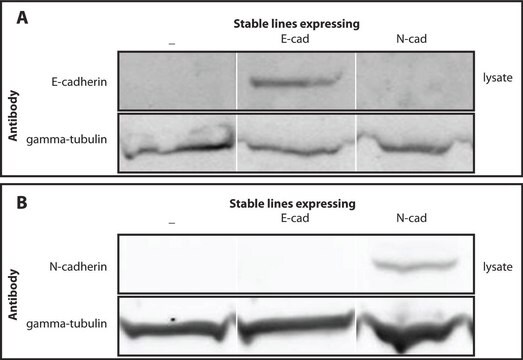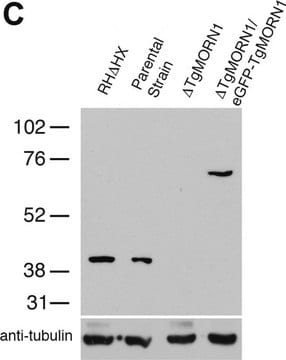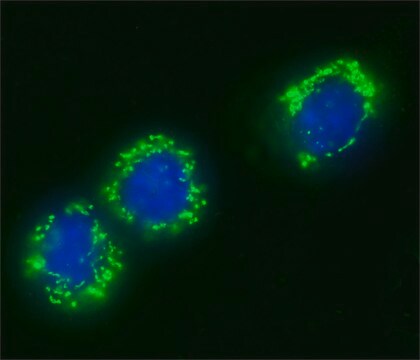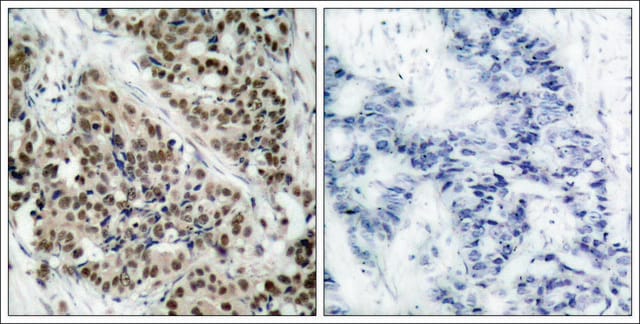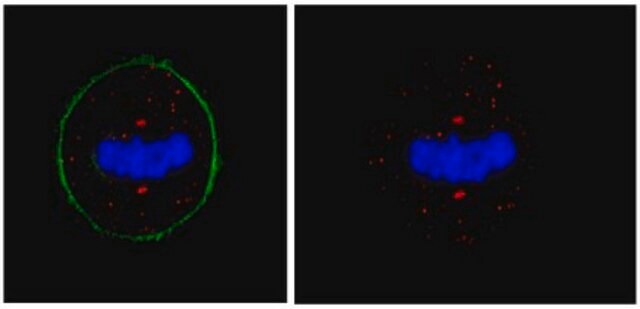T5192
Anti-γ-Tubulin Antibody

rabbit polyclonal
Synonym(s):
Anti-γ-Tubulin
About This Item
Recommended Products
product name
Anti-γ-Tubulin antibody produced in rabbit, affinity isolated antibody, buffered aqueous solution
biological source
rabbit
Quality Level
conjugate
unconjugated
antibody form
affinity isolated antibody
antibody product type
primary antibodies
clone
polyclonal
form
buffered aqueous solution
mol wt
antigen 48 kDa
species reactivity
human, chicken
packaging
antibody small pack of 25 μL
enhanced validation
independent
Learn more about Antibody Enhanced Validation
technique(s)
indirect immunofluorescence: 1:1,000 using methanol/acetone-fixed chicken fibroblasts cells
western blot: 1:1,000 using whole cell extract human epidermal carcinoma A431 cell line
UniProt accession no.
storage temp.
−20°C
target post-translational modification
unmodified
Gene Information
human ... TUBG1(7283) , TUBG2(27175)
Looking for similar products? Visit Product Comparison Guide
General description
Immunogen
Application
- Immunocytochemistry.
- Immunofluorescence.
- Immunoblotting.
- Staining in microscopy.
- Chromatin immunoprecipitation (ChIP).
Biochem/physiol Actions
Physical form
Disclaimer
Not finding the right product?
Try our Product Selector Tool.
Storage Class Code
10 - Combustible liquids
WGK
WGK 2
Flash Point(F)
Not applicable
Flash Point(C)
Not applicable
Certificates of Analysis (COA)
Search for Certificates of Analysis (COA) by entering the products Lot/Batch Number. Lot and Batch Numbers can be found on a product’s label following the words ‘Lot’ or ‘Batch’.
Already Own This Product?
Find documentation for the products that you have recently purchased in the Document Library.
Customers Also Viewed
Articles
Microtubules of the eukaryotic cytoskeleton are composed of a heterodimer of α- and β-tubulin. In addition to α-and β-tubulin, several other tubulins have been identified, bringing the number of distinct tubulin classes to seven.
Our team of scientists has experience in all areas of research including Life Science, Material Science, Chemical Synthesis, Chromatography, Analytical and many others.
Contact Technical Service




